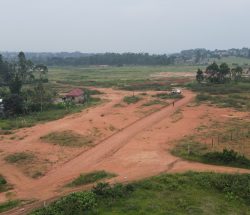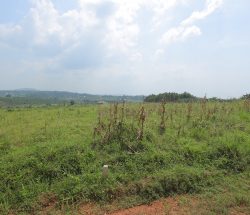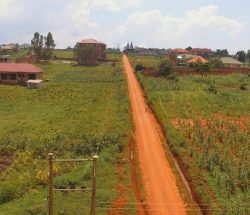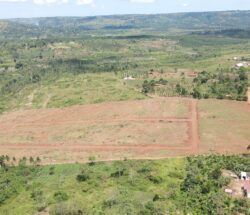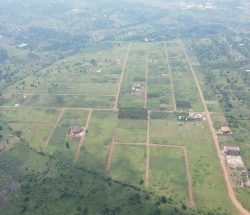


Real Estate Services
Plots of land
Reason to choose us
Mission Statement
To deliver quality public road infrastructure and provide real estate solutions in Uganda
Vision
We develop public infrastructure and provide real-estate development services in Uganda.
Core Values
Integrity
Reliability
Innovation







What they say about us
Isaac Magoola
Proin quis pulvinar enim. Morbi sodales augue viverra, porta mauris vestibulum magna. Donec arcu odio, aliquet dolor sed, eleifend aliquet est. Lorem ipsum dolor sit amet, consectetur adipiscing elit. Pellentesque aliquet, ligula ac…
Namutebi Rachael
Proin quis pulvinar enim. Morbi sodales augue viverra, porta mauris vestibulum magna. Donec arcu odio, aliquet dolor sed, eleifend aliquet est. Lorem ipsum dolor sit amet, consectetur adipiscing elit. Pellentesque aliquet, ligula ac…

Kenny & Babrah
My wife and I began saving 7 years ago, but we were skeptical of buying land due to all the many rumors around. One day when we were watching a career talk online,…
Latest News
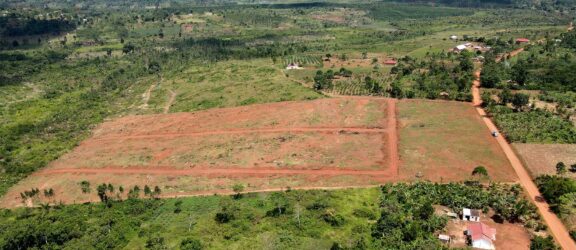
A Guideline to Choosing Your Ideal Piece of Land In Uganda Uganda is considered the “Pearl of Africa” and boasts a rich natural beauty, stunning landscapes, and a wealth of opportunities for land owners. Whether you want to own a business, build your dream home, or invest in real estate, there will be a need for land. However, acquiring a piece of land has never been an overnight success. From identifying the place,ideal plot, and cost implications, you want to acquire a piece that aligns with your needs. Even when you can picture the kind of plot you are looking for, it can be challenging to verify exactly what you are looking for. Especially if you are far from your prospective piece of land. Amidst the challenges surrounding the acquisition of your ideal plot, there is always a way out. This involves having the correct information before you can start the process. In this article, we explore buying land as an investment in Uganda, what you should know before buying a plot, factors to consider, and the available opportunities to grab. You will also learn the best places to buy affordable plots in Uganda. Let’s dive into the details! Is buying land a good investment in Uganda? Buying a piece of land in Uganda is a potentially profitable investment for the following four reasons: Economic growth Uganda’s steady economic growth has led to a rising demand for land. In both urban and rural areas. Which implies appreciating land value. Agricultural potential Uganda’s fertile land and favorable climate form a basis for profitable farming ventures, from livestock rearing to crop cultivation. Real estate development The residential and commercial developments are pretty promising due to the growing competition in the real estate market, especially in major towns and urban areas. Growing population The rapidly growing population is driving the need for housing and infrastructure developments, directly contributing to the appreciating prices of land. Hence, if you are looking to buy a plot in Uganda as part of your investment, you can count on your decision. Furthermore, there are endless opportunities and reasons why you should consider buying land in Uganda as an investment. So, you shouldn’t hesitate when looking to invest in Uganda for your dream plot. What to know when buying land in Uganda It’s not enough to know that buying a plot in Uganda is profitable. It goes beyond the need to invest into what form of investment you want to make. Besides, every good opportunity comes with its challenges and being aware of what you should expect when buying a plot in Uganda is significant in your decision-making. So, what should you look for when buying a plot of land in Uganda? Just like in any other country, land-related issues are bound to arise if not carefully managed from the beginning. Here are the five key things you should know before buying a plot in Uganda. #1 Your rights and obligations are tied to your tenure system Uganda employs multiple land tenure systems, including leasehold tenure, freehold tenure, mailo land tenure, and customary tenure. Understanding the land tenure system that applies to your prospective plot is crucial as it determines your rights and obligations as a landowner. For instance, customary land tenure systems may involve communal arrangements. #2 Title deed issues are not uncommon Clear and vital land titles are a critical consideration when buying land in Uganda. Ensure the plot you want to buy has a valid title deed with verifiable documentation. Verifying the authenticity of the title deed with authorities and legal assistance is recommended. Even better, Uganda offers land title verification services online, which you can utilize to ascertain the ownership of the plot. #3 Land ownership disputes sometimes occur Before closing a land purchase deal, thorough due diligence is essential to establish ownership and history of the land. Check if there are any disputes or conflicts related to the land, as it may affect your land rights and intended investments. Working with professionals such as surveyors and lawyers can help you establish the security of your investment. #4 There are local regulations and zoning laws applicable to landowners There are zoning and development regulations that apply to plots in Uganda. Even the national land use policy is critical when defining your intended land use. Hence, familiarizing yourself with these regulations is essential as they affect how you use the land. Also, compliance with such regulations will reduce the potential of issues arising in the future. #5 Different plots favor specific land uses depending on the location Not all plots favor your need for a piece of land. In Uganda, some pieces of land are favorable for agriculture, while others only favor business development. Also, plots in the rural areas differ significantly from plots in the urban or developed towns and cities. Hence, it’s crucial to determine your intended land use and the specifics that favor your needs prior to buying a plot in Uganda. How do I choose the best plot of land? [7 Considerations to make] Having discussed the things you should know before buying a piece of land in Uganda, there has to be a burning question in your mind. “So, how do I determine the best plot of land for my needs?” Here’s the way to go about choosing the plot that suits your needs: #1 Determine how much you can afford What is your budget? Just like you would do for any other financial decision, it’s essential to plan your finances for your land needs. The good thing about land is that you can always find a piece that suits your needs while sticking within your budget. However, it is your cost evaluations and estimations from the onset of your land hunting that determine your overall ...
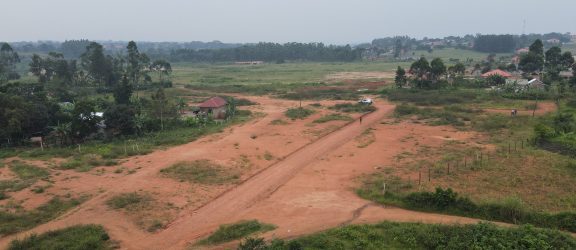
Complete Guide: How to Register and Transfer Land Title in Uganda – 10 Easy Steps Uganda’s Residential Real Estate market is valued at US$ 305.90 Billion in 2023. The value is projected to hit US$ 393.10 Billion in 2028, recording a 5.14% CAGR between 2023 and 2028. The growth indicates that there are as many properties as people are looking to buy and get a land title in Uganda fueled by several factors. Many people in Uganda are moving into the suburban areas in search of more housing space, the ability to work remotely, and lower living costs. There is also a growing interest in sustainable materials and energy-efficient homes with minimal environmental impact. Considering the market growth, buying a plot in Uganda, especially in the suburban areas, is a promising investment. And the process of buying a plot requires registration and transfer of land ownership. Transferring land ownership can be challenging, from gathering necessary documents to liaising with relevant government authorities and settling fees. This is why understanding the procedure of registering and transferring land titles in Uganda is vital. So, are you a prospective landowner or curious about possible investment opportunities in Uganda? This article looks into the procedure of registering and transferring land titles in Uganda. You will also learn the requirements, costs and challenges associated with the process. But before that, let’s understand who should apply for a land title certificate in Uganda. Who Can Apply for a Land Title in Uganda? Land titles are significant in validating the ownership of a plot. Hence, anyone looking for a land entitlement in Uganda is eligible to apply for a land title certificate, including the following: Ugandan citizens buying a new plot on freehold or leasehold terms Non-citizens buying or leasing a piece of land in Uganda Government and public institutions registering land for healthcare facilities, infrastructure developments, government offices or schools. Corporate entities (local and foreign) establishing commercial ventures such as factories and offices Individuals and families seeking to register their customary land in rural areas. What is required to transfer land title in Uganda? Here are the requirements for applying for a land title transfer in Uganda: Duplicate Certificate of the Title to transfer A set of passport photographs (including initial landowner’s and new landowner’s) Embossed Transfer form and 2 Consent forms Payment receipts for stamp duty, registration and consent fees Note: Stamp duty is 1% of the land value, registration fee is 10,000 and consent fee is 10, 000 for individuals and 15,000 for companies. How to Register and Transfer Land Title in Uganda You just bought a piece of land in Uganda. So, what next? Here is a step-by-step guide to registering and transferring your plot in Uganda: #1 Initiate a search and consent form request The Ministry of Lands provides the consent form, allowing you to fill in the details of the parcel you intend to search and register. Consequently, the Registry offers a Bank Avice Form, which facilitates the financial transaction for your search. The Bank Advice Form also acts as the determinant of your tax requirements and execution of associated payments. #2 Settle the search fee With the Bank Advice Form, you can pay your search fee at the bank. Upon payment, you should reserve the transaction receipts as you must present them at the Registry for your search to be executed. #3 Progress with the search and draft a transfer agreement The Ministry of Land is responsible for conducting the search. Once done, you can obtain a consent form for the title transfer. Additionally, it’s best practice to draft a transfer agreement with a lawyer at this point. It helps streamline the transfer process and saves you from any issues arising in the future. #4 Evaluate the value of your parcel The Chief Government Valuer is responsible for evaluating the value of your land. By determining the property’s value, you can calculate the Stamp fee, usually 1% of the property value. #5 Obtain a clearance form and the Stamp duty assessment Once the property value is approved, the documentation is forwarded to the URA desk, and you are issued with an assessment form for Stamp duty. If your land value exceeds 50 Million(UGX), you are required to provide a tax clearance form indicating the source of your income for tax compliance. Besides, the Tax Identification Number (TIN) is required for all land transfers involving Ugandan citizens. #6 Pay the Stamp duty Payment of the Stamp fee is exclusively made at the designated commercial bank. Following your payment, the bank informs URA of the completion of your transaction. A mandatory 3-working-day reconciliation is then conducted between the bank and the Uganda Revenue Authority. #7 Approval of land transfer by Kampala Land Board After the reconciliation between the tax authority and the bank, your transfer documentation is submitted to Kampala Land Board for approval. The receipts for the payment of consent forms are also required. If your land transfer involves a corporate entity, you need special authorization from the Land Board, which costs sh. 20000. #8 Assessing registration fees Your sales agreement is sent to Kampala Capital City Authority to confirm the registration fee. Additionally, you are provided an assessment form with details to pay the registration fee. The documents required at this stage include a receipt confirming payment of the stamp duty, a sales agreement, and the company’s decision to buy and sell. #9 Verifying the land transfer at the Registry The transfer documents are stored at the Land Registry. They are then forwarded to the Registrar for formal processing of the transaction. Once processed, it is sent to the land registration commissioner for verification. #10 Approving the registry and transfer The registrar nullifies the initial landowner and replaces the entry with the new owner. Passport photos ...

